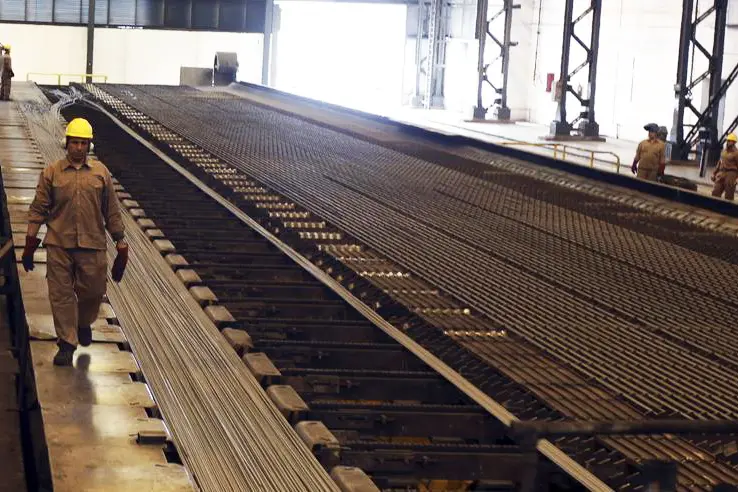PHOTO
Egypt’s Ezz Steel (ESRS), one of the biggest steel producers in the MENA region, reported a wider year-on-year (yoy) loss in first quarter (Q1) standalone earnings for 2019.
The company’s Q1 2019 standalone net loss after tax amounted to 369 million Egyptian pounds ($22.24 million), compared to a net loss of 187 million pounds for Q1 2018.
Ezz Steel’s standalone sales stood at 2 billion pounds in Q1 2019, a 3.63 percent increase compared to the 1.93 billion pounds recorded in Q1 2018.
“Further interest rate cuts could unwind a bit on the company leverage, given that approximately each 100 bps (basis points) cut in interest rates translates to about EGP200-EGP250 million cut in interest expense,” Lina Hisham, associate vice-president at Naeem Brokerage, told Zawya by email.
According to the Central Bank of Egypt’s website, the monetary policy committee kept the deposit rate, overnight lending rate and the rate of the main operation unchanged at 15.75 percent, 16.75 percent, and 16.25 percent respectively at its last meeting in May 2019.
“Also, if ESRS could find any way to raise its stake in EZDK (Al Ezz Dekheila Steel) that would be positive for ESRS’s shareholders,” Hisham added.
AlEzz Dekheila Steel is a company with a large steel plant in Alexandria in which ESRS currently has a 55% stake.
The company announced its standalone results late on Tuesday, prior to the market's closure. After the announcement, Ezz Steel’s stock dropped 3.92 percent to 10.78 pounds by 15:14 GST. Egypt’s Beltone Financial has a fair value of 23.4 pounds per share for Ezz Steel.
“We believe the medium-to-long term vision for Ezz Steel is more positive than its short-term outlook,” Mohamed Magdi, associate vice president at Beltone Financial, told Zawya by email.
“ESRS’s major drawback was its inability to pass the increasing energy costs (as Egypt’s government reduced subsidies on energy prices) and iron ore global price increase to the end consumer on fears of cheaper steel imports,” he added.
The Egyptian government committed to cut energy subsidies as part of a $12 billion three-year loan programme with the International Monetary Fund (IMF) in 2016. (Read more here).
(Reporting by Gerard Aoun; Editing by Michael Fahy)
Our Standards: The Thomson Reuters Trust Principles
Disclaimer: This article is provided for informational purposes only. The content does not provide tax, legal or investment advice or opinion regarding the suitability, value or profitability of any particular security, portfolio or investment strategy. Read our full disclaimer policy here.
© ZAWYA 2019





















